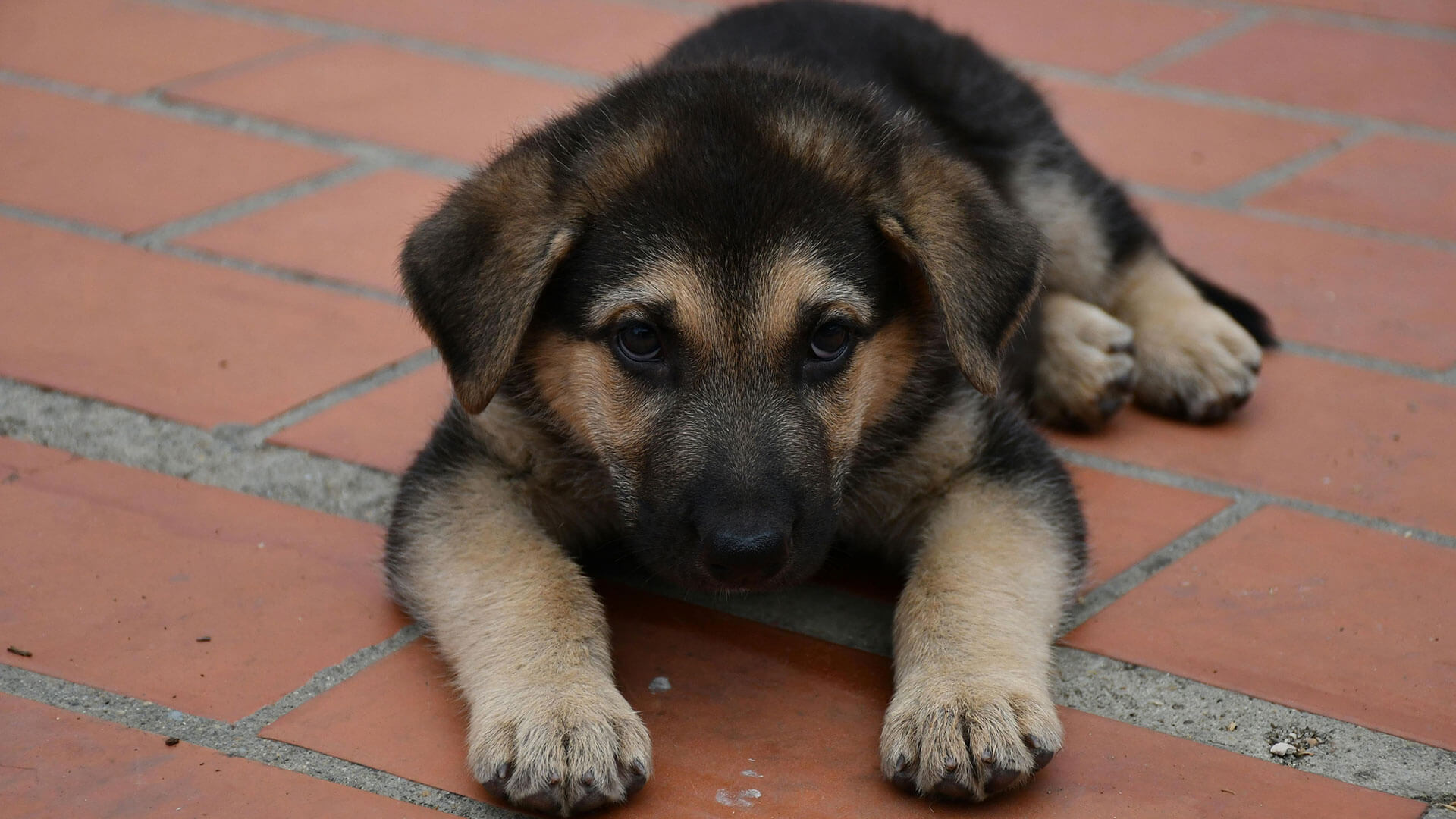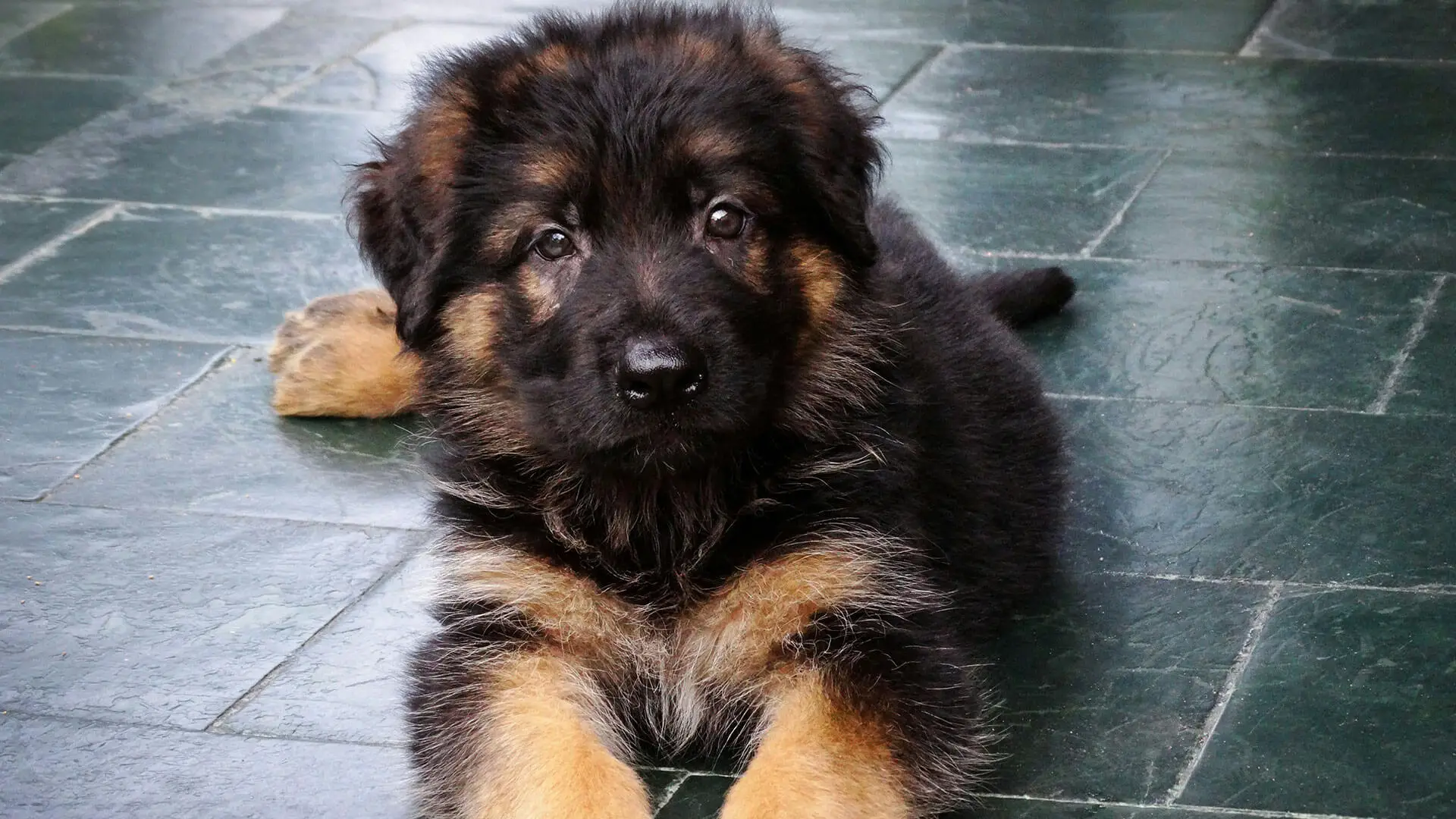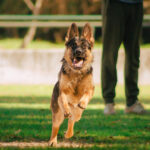If we talk about the most loyal, intelligent, and protective dogs, German Shepherds take the stage. Owning one offers both security and joy, but this bond can be strained by your pup’s bad potty habits.
The good news? It’s in your hands. With proper training, you can transform your puppy into a clean, trustworthy companion while keeping your home hygienic.
Many pet owners are unaware of the right approach to training their German Shepherd puppy for potty training. And that’s where this article steps in. We’ll simplify the process, helping your pup learn quickly and strengthening your bond along the way.
Why does effective puppy potty training schedule matter?
Effective potty training is more important than it may seem. Here are three major reasons why it really matters:
First, a training schedule helps your puppy learn when and where to go to the bathroom. When they follow a routine, they understand what is expected and feel more confident. As a result, they are less likely to make a mess inside.
Second, when they follow a routine, it helps them learn faster and build good habits. Repeating the same steps every day teaches them the right way to behave. Also, the habits they learn as a puppy will stay with them as they grow.
Third, it keeps your home clean and smelling fresh. Nobody wants to keep cleaning up messes or dealing with bad smells. The best reason for the puppy potty training, isn’t it?

Key Steps to Train a German Shepherd Puppy for Potty
Here are 6 steps you can follow to teach your puppy to go potty in the right place:
1. Select a specific potty area
The first thing to do is pick one spot outside where you want your puppy to go potty every time. For that, choose a place that’s easy to reach like a corner of your yard. But remember to keep it clean as puppies avoid dirty areas.
Also, take your puppy to this exact spot after meals, naps, playtime, and make it the first thing in the morning. Doing this over and over helps them learn, “This is where I go.”
When they potty there, cheer right away with treats, happy words, or a quick game. Why? This tells them they did it right!
2. Set a proper schedule
A regular puppy potty training schedule is what you need to stick with. For example, when they are 8–12 weeks old, take them outside every 1-2 hours. It’s just because young puppies have tiny bladders and need lots of chances to go.
As your German shepherd pup grows around 12–16 weeks, slowly wait longer between trips, like every 3-4 hours. These tail-wagging buddies love routines and learn faster when things are predictable. That’s why, setting a routine is non-negotiable.
3. Use a potty command
The most important action to perform is choosing a clear and simple command, like “potty” or “go champ”. That means, each time you take your puppy outside, say the chosen word in a calm voice.
Repeating the command every time helps the puppy understand what you expect. As we mentioned above, German shepherds thrive on regularity, so, this repeated instruction builds a strong association between the word and the action of going potty.
When your puppy follows the command correctly, offer plenty of praise. A hug can be beneficial, too. Over time, all you need will be just say and find your furry friend in the potty area rather than forcing it to go.
4. Keep feeding times consistent
Another key step to train your German Shepherd puppy for potty successfully is by giving meals on a fixed schedule. By establishing set meal times, you can predict when your puppy needs to go potty.
Instead of allowing free-feeding all day, offer meals at specific times. For example, when your puppy is younger than six months, feed them three times a day. Later, gradually change to twice a day. Plus, always remove the food bowl after 15-20 minutes to keep mealtimes consistent.
This routine creates consistency and helps your puppy learn when it is time to do their business outside. A steady feeding schedule means a predictable time to go potty.
5. Limit the use of potty pads
Potty pads can confuse your puppy by teaching them it’s okay to go to the bathroom inside the house. This can make it harder for them to learn that they should only go outside. Puppies might think it’s fine to pee on rugs or carpets if they get used to potty pads.
However, in some cases, like living in a high-rise apartment or during very cold weather, you can use potty pads. So, consider them just for an exceptional case.
If you use them, try to switch to outdoor training as soon as possible.
6. Be Consistent
You may have heard that consistency is key in every phase of life. And the same applies here. It may be stressful in the start, but that’s worth it in the long run.
With a proper and consistent puppy potty training timeline, you can raise a German Shepherd that’s not only protective but also well-behaved. Watch your puppy closely for signs that they need to go outside between scheduled times. When your puppy shows these signs and successfully goes potty outside, always praise and reward them.
How long will it take to potty train a German Shepherd puppy?
Potty training a German Shepherd puppy requires patience and a structured schedule. Typically, it takes approximately four to six months for the puppy to fully understand and adapt to these potty habits.
But some might learn faster if get strict routines and reinforcement. However, the best way to potty train German shepherd puppy depends on regular trips outdoors, praise for correct behavior, close monitoring, and consistency.
Instead of worrying about how long training will take, focus on giving quality training. That part is up to you. The better the training you provide, the faster your puppy will get used to the habit.
FAQs
How to Train a German Shepherd Puppy for Potty?
Pick one clean, easily accessible spot outside where you want your puppy to do their business. Take them to this place with consistency such as after meals, play, naps, or make it the first thing to do in the morning. Plus, use a simple word or phrase like “potty” or “go champ.” Say this command calmly and consistently each time you take your puppy outside. Along with that, feed them at the same times each day rather than free-feeding. When your pups perform these actions successfully, praise or reward them. But remember, consistency is key here.
When should I take my puppy outside to potty?
Younger puppies like 8–12 weeks old, may need to go every 1-2 hours, while older puppies like 12–16 weeks can wait 3-4 hours between trips.







